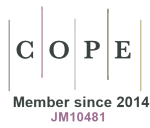Effectiveness of face-to-face physiotherapy training and education for women who are undergoing elective caesarean section: a randomized controlled trial
DOI:
https://doi.org/10.1186/s40945-021-00128-9Keywords:
Face-to-face physiotherapy training and education, Elective caesarean section, Enhanced post-operative recovery, PrehabilitationAbstract
Background: Caesarean Section (CS) is associated with numerous post-operative problems. The current literature reveals that physiotherapy interventions such as pelvic floor rehabilitation and post-surgical rehabilitation enable enhanced recovery in the post-operative period. The purpose of this study was to investigate the effectiveness of face-to-face physiotherapy training and education prior to elective CS in improving post-operative outcomes. Methods: A single blind parallel randomized controlled study was carried out at De Soysa Hospital for Women (DSHW), Colombo. Fifty-four women who were to undergo elective CS were recruited to the study. The women in the intervention group (n = 27) received face-to-face physiotherapy training and education; the control group (n = 27) received only the standard nursing care. Outcome measures such as perception of post-operative pain, dosage of additional analgesics required, pain upon returning to functional activities and lengths of hospital stay were collected. Results were analyzed using IBM SPSS 20 using descriptive statistics and independent samples t-test. Results: Mean post-operative pain score (control group; 4.2±0.46 vs. intervention group; 1.7±0.7) and doses of additional analgesics required were significantly higher in the control group than that of the intervention group. Pain upon returning to functional activities decreased significantly within 2 days in both groups, and values were lower in the intervention group. The intervention group showed a shorter hospital stay than the control group (control group;3.9 ± 0.3 vs. intervention group;3.00 ± 0.0) (p < 0.05). Conclusions: Face-to-face physiotherapy training and education prior to elective CS appears to be a promising intervention to improve the post-operative outcomes by reducing post-operative pain, doses of additional analgesics required, pain upon returning to functional activities and lengths of hospital stayDownloads
Download data is not yet available.
Downloads
Published
2022-02-03
How to Cite
Weerasinghe, K., Rishard, M., Brabaharan, S., & Mohamed, A. (2022). Effectiveness of face-to-face physiotherapy training and education for women who are undergoing elective caesarean section: a randomized controlled trial. Archives of Physiotherapy, 12(1). https://doi.org/10.1186/s40945-021-00128-9
Issue
Section
Research Article
License
Copyright (c) 2022 The Authors

This work is licensed under a Creative Commons Attribution-NonCommercial 4.0 International License.









